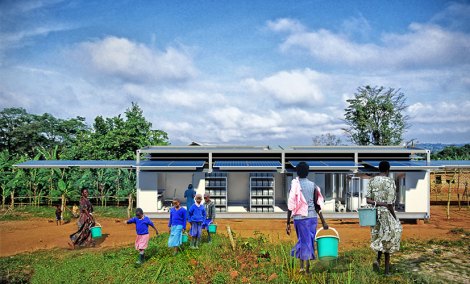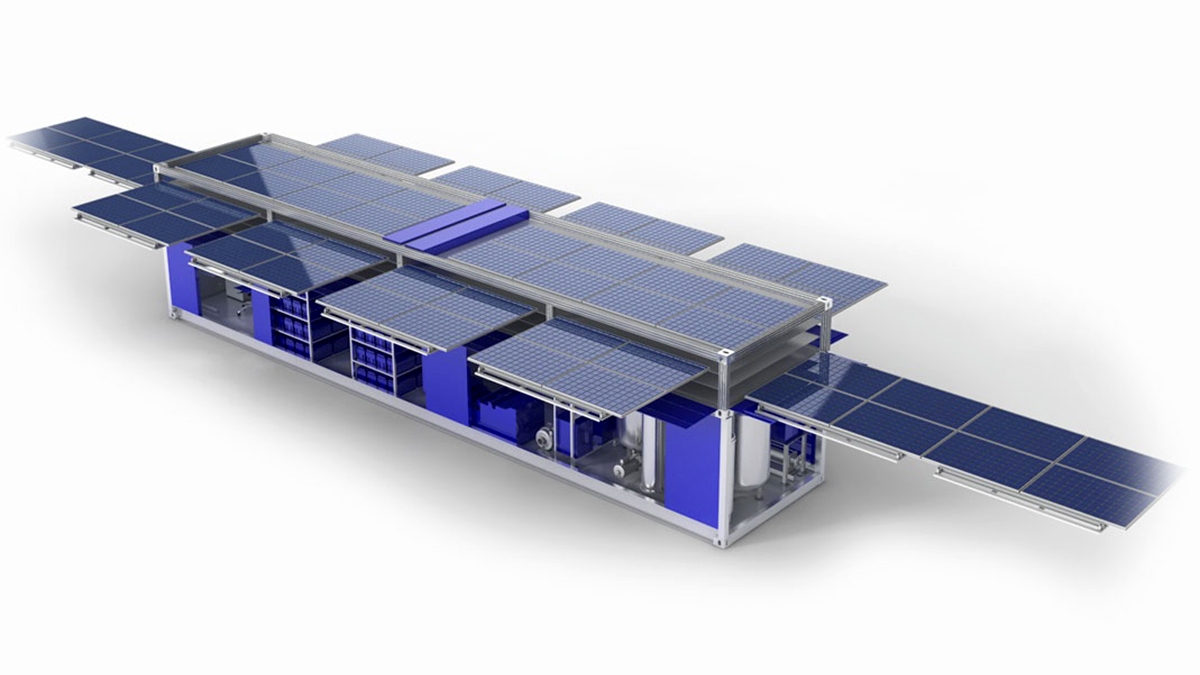If there’s anything your average irony-loving, trucker-cap-wearing hipster can’t get enough of these days, it’s pop-up shops. Mobile couture boutiques, indie-label record store shopping pods, artisanal mac-and-cheese food trucks — you name it. But now Florida-based tech company Ecosphere Technologies has taken the pop-up concept and attached it to something even more powerful than tacos: the sun.
The Ecos Powercube sounds like a video game console but is actually a fully functioning solar-powered energy station. The company describes it as “the world’s largest mobile solar-powered generator.” The technology is housed in shipping containers, so the Ecos Powercube can be brought in by boat, rail, or plane and dropped (gently) anywhere in the world for disaster relief, refugee situations, and military operations that sometimes cause refugee situations.
Once on the ground, the Ecos Powercube opens up like a freaking Transformer to deploy hidden, high-power photovoltaic solar panels. Seriously: Panels slide out like drawers on all sides to cover a wider energy footprint and produce 15 kilowatts of energy (check out this animated and somewhat creepy video of how it works here). The Powercube can even draw moisture out of the air to make clean, potable drinking water (feature request for version 2.0: Turn that water into wine). They also put a small wind turbine on it, because if you like generating renewable energy, there’s nothing like generating more renewable energy while generating renewable energy. All that energy gets stored in onboard batteries for later use. Also, the Ecos Powercube has internet capability for up to 30 miles, so no one has to miss a tweet even in the most remote of relief zones.
Here’s a big bonus: After the panels fold out, the Eco Powercube has ample space inside to function as a temporary school, shelter, or medical center. It can even act as a generator to power other buildings, so it’s really handy for humanitarian efforts in the developing world. Wherever hot zones in a disaster area move, the Powercube can just be folded up and moved with it.

The design was inspired by a suggestion from Jean-Michel Cousteau (son of famous ocean explorer Jacques Cousteau). According to Corey McGuire, the director of marketing for Ecosphere Technologies, Cousteau “asked us to figure out ways to bring energy, water, and communications to remote places — like a school in a village in the developing world — without the use of fossil fuels.”
Cousteau should be happy. The Powercube cleared his high bar and it’s more than meets the eye.


